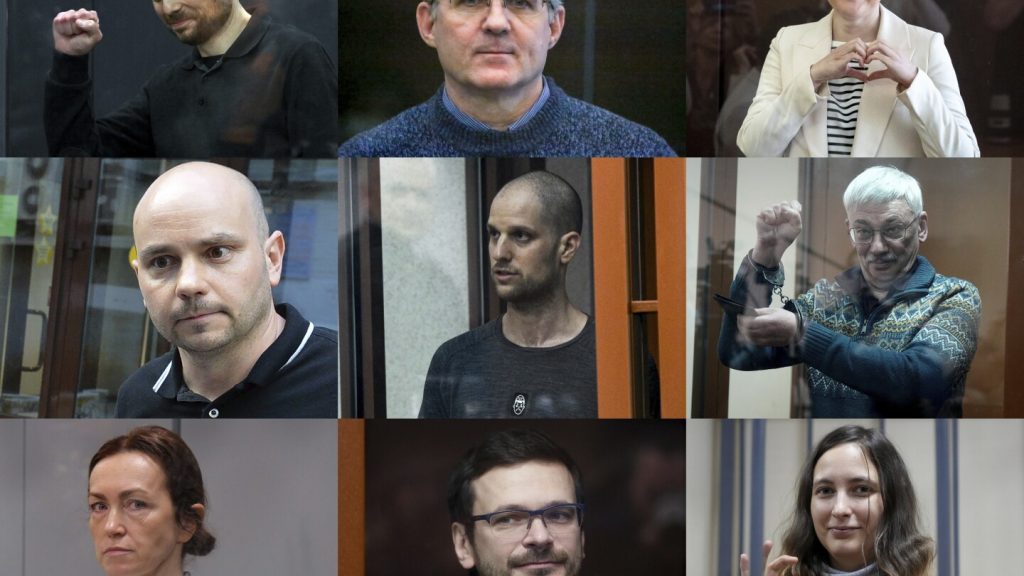TALLINN, Estonia (AP) — On Thursday, a significant prisoner swap took place between Russia, Belarus, and the West, leading to the release of several individuals who had been detained on various charges. Among those released by Russia and Belarus were individuals such as Evan Gershkovich, a Wall Street Journal reporter, who was falsely accused of espionage, and Paul Whelan, a corporate security executive from Michigan, who was also convicted of espionage and sentenced to 16 years in prison. Another individual, Alsru Kurmasheva, a dual U.S.-Russian national and editor for Radio Free Europe, was sentenced to 6 1/2 years in prison for spreading false information about the Russian military.
Vladimir Kara-Murza, a dual Russian-U.K. citizen and prominent opposition politician, was also released as part of the swap after being convicted of treason and other charges in 2023. Ilya Yashin, a well-known Kremlin critic, was serving an 8 1/2 year sentence for his views on the war in Ukraine. Oleg Orlov, a veteran human rights campaigner, was sentenced to 2 1/2 years in prison for protesting the war in Ukraine. Sasha Skochilenko, Ksenia Fadeyeva, Lilia Chanysheva, Vadim Ostanin, and Kevin Lik were also among those released, with charges ranging from anti-war activities to extremism.
Individuals released by the West in the swap included Vadim Krasikov, who was convicted of assassinating a Georgian citizen in a Berlin park. Pavel Rubtsov, a journalist, was arrested on espionage charges in Poland, Roman Seleznev was sentenced to 27 years in prison in the U.S. for hacking into businesses, and Vladislav Klyushin received a nine-year prison sentence for his involvement in a fraud scheme. Vadim Konoshchenok, Artem Dultsev, Anna Dultseva, and Mikhail Mikushin were also released as part of the swap, each facing various charges related to espionage or illegal activities.
The prisoner swap marked one of the largest East-West civilian exchanges since the Cold War, with individuals from both sides being freed from their respective detainments. The release of these individuals bring attention to the complex geopolitical relationships between Russia, Belarus, and the West, as well as the importance of human rights and justice in international affairs. The swap highlights the significance of diplomatic efforts in resolving conflicts and securing the release of individuals who have been wrongfully detained.
The individuals who were released had faced a range of charges, including espionage, treason, extremism, and anti-war activities. Many had been outspoken critics of the Russian government and were targeted for their opposition to policies such as the war in Ukraine. The cases of these individuals shed light on the challenges faced by journalists, activists, and political figures who speak out against oppression and injustice in authoritarian regimes. The prisoner swap represents a small victory for those advocating for the protection of human rights and freedom of speech in the face of international conflicts.
The release of these individuals brings some relief to their families and supporters who have been campaigning for their freedom. Many of the detainees had been held for years, enduring harsh conditions and being subjected to unjust legal proceedings. The prisoner swap serves as a reminder of the importance of solidarity and cooperation in advocating for the rights of those who have been unjustly detained. As the released individuals begin to rebuild their lives, the focus shifts towards ensuring accountability for the injustices they have faced and working towards preventing similar abuses in the future.


